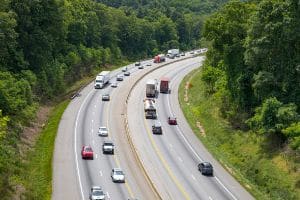Most people don’t think twice about tossing their keys to a friend so they can run a quick errand or about lending their car to a sibling for the weekend. However, it can quickly make you question that decision if you get a call from them letting you know they were involved in a crash.
It can be even more frightening and stressful if you are the one who gets into a crash while driving a car that’s not yours (like I unfortunately did with my sister-in-law’s car a few years ago!), especially if there are injuries or damage to the car. This blog will hopefully make things a little less stressful by clearing up who is potentially liable in this situation and how you should proceed.
Who is Liable If I’m in a Wreck While Driving a Friend’s Car?
Generally, when you purchase an auto insurance policy, you are actually buying coverage for that car, and not yourself as a driver. That’s why if you have more than one car, each car needs to be listed on the policy. The good news is it does also cover you when driving someone else’s car.
It also means that whenever you get into a crash, you should use the coverage associated with that car. If you were driving a friend’s car, you should use the friend’s insurance first!
Most auto insurance policies allow “permissive use,” which means they will cover drivers not listed on the policy if they are only driving the vehicle occasionally, usually defined as less than 12 times per year. Be sure to check the terms of the insurance policy in question first. Some policies do specifically exclude coverage for anyone not listed as a driver on the policy.
If you are found to be at fault for the crash and the injuries and repair costs are more than your friend’s policy limits, the other driver in the crash could potentially also file a claim against your insurance to get the remainder of what they need in compensation. Your friend’s insurance may also refuse to cover you if you did not have permission to take the car.
Of course, if the other driver in the crash was at fault, that means they and their insurance are the ones responsible for paying for both your injuries and your friend’s vehicle repairs.
Who is Liable If I’m in a Wreck While Driving a Family Member’s Car?
Georgia law follows Family Purpose Doctrine, which states that “every person shall be liable for torts committed by his wife, his child, or his servant by his command or in the prosecution and within the scope of his business, whether the same are committed by negligence or voluntarily.”
In more simple terms, it says that the same way an employer is liable when their employee harms someone while on the job, the head of a household is liable when anyone in their household injures anyone.
Even more simply, if Dad owns a car, and Mom uses it, and Son uses it, and Daughter uses it, and they all have the expectation that they are allowed to use it, Dad is liable for any crashes in that car, as long as another member of the family was using it at the time, and if they were at fault.
Related Reading: What Happens If the Driver Who Caused My Wreck Was a Teenager?
What to Do If I Get into a Crash in My Friend’s Car?
If you get into a wreck while driving a friend’s car, many of the initial steps are the same as if the wreck had happened in your own car, with a few extra added in.
- Call 911 to get police on the scene to file a report and get emergency medical treatment for any injured victims.
- Exchange contact information with the other driver. You should also provide them with the insurance information for the vehicle you were driving (in this case, your friend’s insurance information).
- Let your friend know. They will need to give the details of the crash to their insurer.
- Let your own insurer know. If you are at fault and the damages exceed your friend’s policy, your insurance will need to cover the rest.
- See a doctor. It’s important to get any injuries you suffered diagnosed and treated immediately.
- Contact a lawyer. With multiple insurance companies involved and all of them doing their best to deny responsibility, these types of crashes can get complicated, especially if you are trying to prove you are not at fault, or not the majority at fault.
Call Gary Bruce After a Wreck
When you are in pain, stressed out, and unable to work due to your injuries after a crash, the last thing you need is to have to fight for the compensation you are owed. Instead, let Gary Bruce do the fighting for you.
Our law firm has seen these types of crashes more times than we can count, and we know how to handle them swiftly and efficiently for our clients. Contact us today for a free case evaluation.
